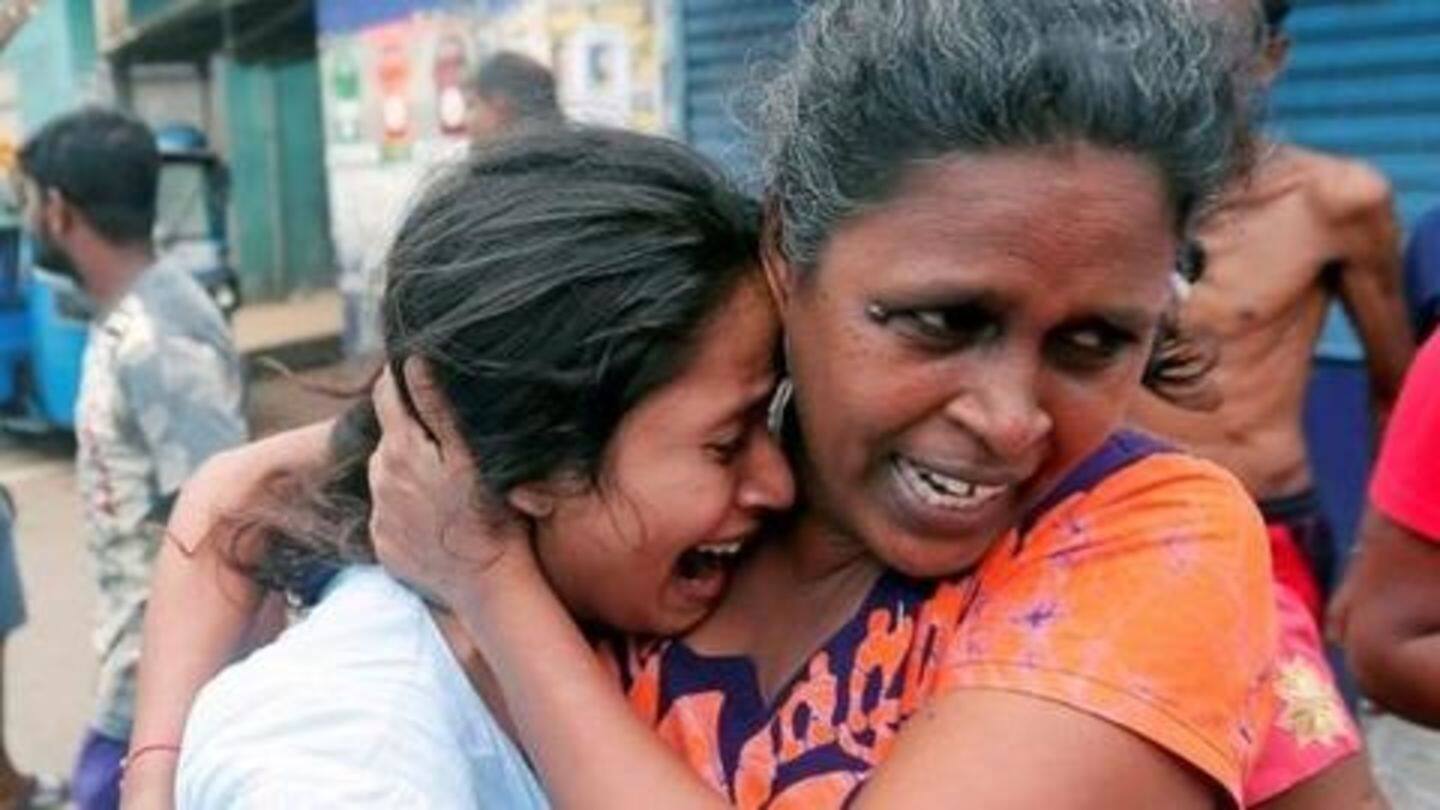
Wealthy Muslim family behind Sri Lanka attack that killed 359
What's the story
Locals of Dematagoda, a quiet suburb in Sri Lankan capital Colombo, had no clue that a wealthy family in the neighborhood was planning something sinister behind closed doors. The wealthy and educated Muslim family carried out Easter Sunday terror attacks in Sri Lanka which killed 359 people and injured over 500. As police launched an investigation, disturbing details came to fore. Read on.
Context
Eight bombs tore Sri Lanka apart, world watched in dismay
Easter Sunday turned bloody in Sri Lanka when terrorists attacked three churches and three posh hotels, almost simultaneously. As the world looked with shock at the turn of events, two other bombs went off. After the attacks, no group claimed responsibility until Tuesday when ISIS said it carried out the operation. However, its actual role will be clarified as the investigation progresses.
Bombers
Two brothers attacked two hotels
The attack was allegedly planned by Inshaf Ahamed Ibrahim. He detonated the bomb at Cinnamon Grand hotel around 9 AM. Around the same time, Inshaf's younger brother Ilham attacked Shangri-La hotel. Apparently, Ilham radicalized his older brother. When police raided their high-end mansion soon after the explosions, Ilham's pregnant wife Fatima detonated another bomb. Her action killed her three children and three officers.
Patriarch
Father of bomber brothers runs successful business
The family background of the bomber brothers busts the theory that only poor and underprivileged turn to terrorism. Inshaf and Ibrahim's father is YM Ibrahim, who is one of the most successful businessmen in Sri Lanka. He has been running Colombo-based Ishana Exports, a company that deals in spices, since 2006. Ibrahim has connections with political elites. Currently, he is in police custody.
Information
Some terrorists had run-ins with law for minor offenses
According to Ruwan Wijewardene, Sri Lanka's Defense Minister, the group of bombers broke off from local radical outfit National Thowheed Jamaath. Some of the terrorists had run-ins with the law for minor offenses. Meanwhile, he revealed one of the bombers studied in UK and Australia.
Shock
Ibrahim hosted an annual luncheon, was amicable, said locals
When locals learned about the involvement of Ibrahim's family, they were shocked. 84-year-old Piyal Siriwardena told Washington Post, "He was a good, generous man." Ibrahim hosted an annual luncheon for hundreds of people in Colombo's Pettah neighborhood. While the family kept things to themselves and women of the household weren't seen outside, Ibrahim interacted with neighbors, locals claimed.
Change
Apparently, Inshaf changed under his brother's influence
People in the know told Telegraph, Inshaf was involved in his father's business. He also ran a parallel copper business. But something changed in Inshaf three years ago when he started getting influenced by his younger brother, who was overtly religious. "His language became very isolating towards Muslims who lead a normal life. He kept arguing about things," a source told the daily.
Failure
Police was told about Thowheed Jamaath's sermons, they ignored
The heinous attacks could have been prevented if Sri Lankan authorities paid more heed to intel reports. Reportedly, Hilmy Ahamed, vice president of the Muslim Council of Sri Lanka, said he alerted concerned authorities. Hilmy had raised concerns over religious sermons issued by Thowheed Jamaath and its leader, Hashim. One of the sermons was issued in February. But the police failed to act.
Sirisena's response
Meanwhile, Sirisena said he didn't have information
As the glaring faults raised pertinent questions, President Maithripala Sirisena in a televised address claimed he didn't have prior intelligence. "I have to specifically mention that intelligence was not reported to me by the responsible people," he said. Based on Sirisena's orders, Pujith Jayasundara, Sri Lanka's police chief, and Hemasiri Fernando, the top civil servant at the Defense Ministry, resigned on Wednesday.